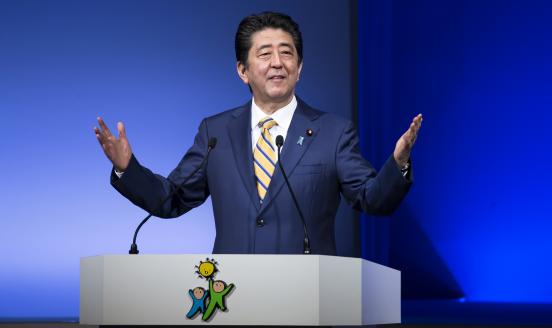Europe and Japan: Monetary policies in the age of uncertainty
The 5th Bruegel - Graduate School of Economics, Kobe University conference will focus on monetary policy.
Speakers
Wataru Takahashi
Osaka University of Economics, former Director General, Institute for Monetary and Economic Studies, Bank of Japan,
Maria Demertzis
Senior fellow
Tamotsu Nakamura
Dean, Graduate School of Economics, Kobe University,
Martin Hellwig
Director (em.), Max Planck Institute for Research on Collective Goods,
Kosuke Aoki
Professor, University of Tokyo,
Athanasios Orphanides
Professor of the Practice of Global Economics and Management, MIT
Ulrich Bindseil
Director General Market Infrastructure and Payments, European Central Bank
Miles Kimball
Professor, Department of Economics, University of Colorado Boulder,
Eric Lonergan
macro hedge fund manager, economist, and writer,
Tokiko Shimizu
General Manager for Europe and Chief Representative in London, Bank of Japan,
Lex Hoogduin
Professor Economics, University of Groningen,
Ester Faia
Chair in Monetary and Fiscal Policy, Johann Wolfgang Goethe University, Frankfurt,
Benoît Mojon
Director, Monetary and Financial Studies, Banque de France,
Marianne Nessén
Senior Advisor to the Executive Board, Sveriges Riksbank,
vIDEO AND AUDIO RECORDINGS
SUMMARY
On 2 October Bruegel and the Graduate School of Economics, Kobe University organised their annual conference, this time focusing on monetary policy.
Monetary policies have a transformative potential. Lack of understanding of these conventional and unconventional policies around the world can have a disruptive effect and delay the so much needed proposals in today’s uncertain economic and political environment.
This event discussed whether the European Central Bank (ECB) and the Bank of Japan (BoJ) have a chance of reaching their inflation targets- which is their core mandate. The event will also take a more forward looking view on specific monetary policy instruments, rather than only a general (and a bit backward looking) one on the transmission channels of monetary policy to macro and inflation. We analysed how monetary policy can operate (and "normalize") with a very large balance sheet, what are the unconventional tools and how to react to the next recession if we are still in a low interest rate environment (particularly relevant in the Japanese case), and how negative rates can be used. In addition, we challenged our experts and audience while debating how independence and accountability of Central Banks did or did not weather the crisis and how this plays in for fiscal/monetary coordination.
EVENT MATERIALS
Presentation by Athanasios Orphanidis
Presentation by Gregory Claeys




















